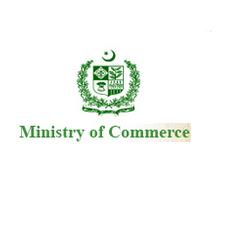ISLAMABAD: Ministry of Commerce (MoC) has failed to prepare the draft on e-commerce policy framework during the last two years.
Senior officials said that Federal Board of Revenue (FBR) could not submit a draft on taxation thus delaying the e-commerce policy.
FBR has yet to submit a report on taxation matters pertaining to e-transactions and financial transactions as Pakistan does not have specific taxation rules defined for such transactions, currently.
Officials said that the commerce minister and IT minister on the direction of former prime minister constituted a Joint Working Group on e-commerce framework in December 2015 and the working group was instructed to submit reports within the due date.
“A regulatory framework report from MoIT, e-payment report from SBP, logistic report from communications division and input from the private sector has been received so far. These reports suggest incorporating availability and reliability of ICT infrastructure and platforms, development of supportive financial services regulations including laws for e-signature and e-contracting. Moreover the proposed draft suggests development of logistic systems powered by GPS and cell phones, up gradation and integration of Pakistan Post‘s Operations in consultation with the ministry of communications, so that it can be positioned to benefit from development of e-commerce, in addition to this, changing in trade regulations has been proposed so that it can be made more supportive of e-commerce.
The reports also look into the involvement of educational institutions for promoting entrepreneurial and consumer digital literacy, regulation on privacy, consumer protection and conflict resolution, and the institutional arrangement for continuous analysis of e-commerce, officials further added.
It is worth mentioning here that former prime minister had directed commerce ministry to announce the policy in September 2017 but its announcement was extended to December due to delaying tactics of the tax department.
According to one report, currently, there are more than 30 million internet users in the country and the Pakistani e-commerce market is expected to reach over $ 125 million by 2017. There are four methods of payment in Pakistan which include cash on delivery, bank and wire transfer, EasyPaisa and MobiCash among others and card payments.
Cash on Delivery is the most commonly used payment method in Pakistan. As per estimates, more than 64 per cent of e-commerce users in Pakistan prefer Cash on Delivery (COD) payment model. Meanwhile, very few e-commerce businesses operate on the system of only delivering the product after receiving the amount through a wire/bank transfer.
Furthermore, some e-commerce websites also prefer EasyPaisa for transferring small amounts whereas most of the e-commerce websites in Pakistan have merchant accounts integrated into portals to credit card facilities.
Commerce and Textile Federal Minister Pervaiz Malik while talking to Pakistan Today said that the ministry is working on e-commerce policy and soon it would be completed. “We have signed Memorandum of Understanding (MoU) with AliBaba and with this policy, e-business would flourish in country”, he added.




